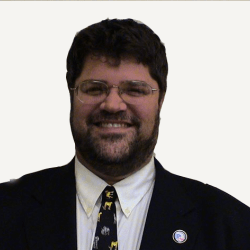Thinking about Risk in the Current Geopolitical Climate
The two questions I get asked the most when there is conflict, crisis, or tension, is “why” and “how.” Anxious parents call to ask, “why haven’t you cancelled that program?” or a school may ask, “how can you guarantee our students’ safety?” Naturally, both questions are followed with the additional question, either spoken aloud or implied, of “what are you thinking?” And it is this “what” that I think merits revisiting because the answer shapes our answers to “why” and “how.” So, what is it that we think we are doing?
In a nutshell, we think we are part of the process of making the world a better place. We believe that making it possible for students to see the world differently, through a new lens gained from experiences in a new culture, will lead to positive change.
Looking at this mission in the context of current geopolitical tensions of the Middle East does not lead us to say, “let’s stop running programs there.” Rather, it causes us to revisit basic risk management tenets and carefully assess reality versus rhetoric. It requires that each student, family, and school consider carefully what risks that they are willing to assume.
The reality is that the University of Haifa is still running classes as are universities throughout the region. Learning is ongoing and lives are being changed. Our students and staff are not being targeted merely by being in the region. Threatening rhetoric is currently indiscriminate as to location, and equally likely or unlikely to occur. It is in this world that our work to support change and learning continues to be critical.
Michelle Obama framed the “why” of study abroad in this way “The fact is, with every friendship you make, and every bond of trust you establish, you are shaping the image of America projected to the rest of the world… When you study abroad, you’re actually helping to make America stronger.”
We cannot guarantee safety. No one can, nor should anyone. We can, however, promise to support students in understanding the risks that they are assuming when going to study in Jordan, Tokyo, or Copenhagen. We can help them learn what adaptations they need to make to stay safe, to assimilate into the local culture, and to make friendships and bonds of trust.
We study student safety/security incidents and share those findings with students to allow future students to learn the lessons from history of events that happened to people that look and sound like them. And we have systems and structures in place to support students, including 24/7 emergency contacts, emergency evacuation plans, and mental health support assistance. All driven by the absolute need to ensure that the student can learn and thrive.
So, what is it we think we are we doing? We are supporting students through a life-changing international experience, in order to help change the world.
As Mother Teresa said, “Peace begins with a smile.”
